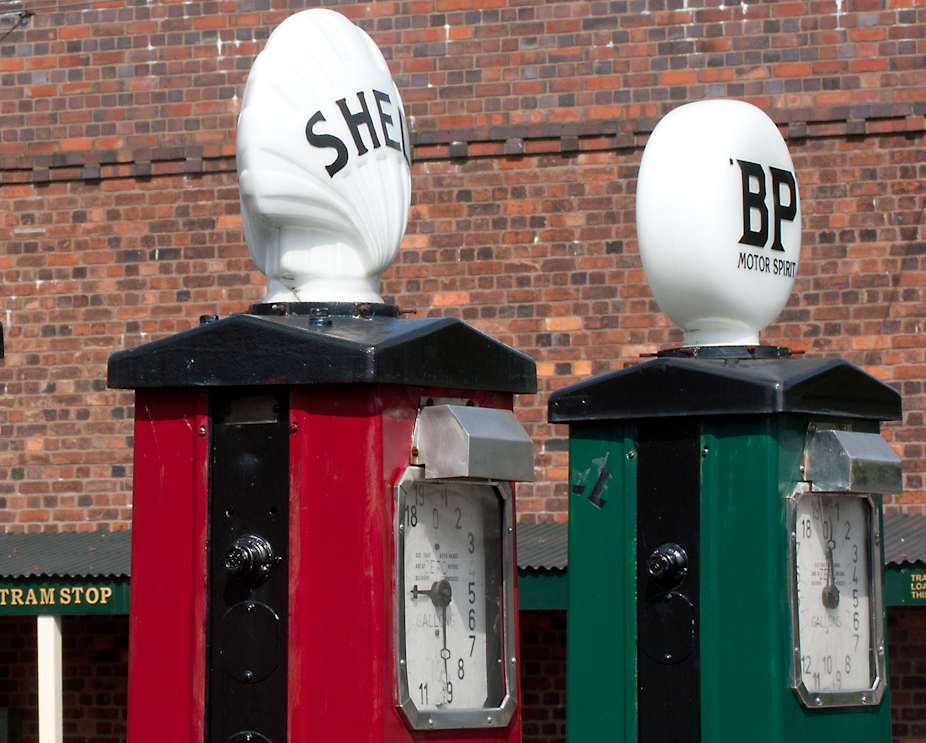When most of us think of cartels, we think of Colombian drug gangs rather than multi-national businesses. But not any more; if European regulators are to be believed, a cartel has been operating much closer to home.
Last week saw a series of raids on the corporate offices of Royal Dutch Shell, BP, and Norway’s Statoil by the European Directorate-General for Competition (or “DG Comp” as it is more commonly known). All companies involved have stated they are fully co-operating with the investigation.
These oil giants are suspected of “fixing prices” in the market for petrol, which may have resulted in retail prices being artificially increased across Europe.
This also comes as something of a revelation to many as The Office of Fair Trading reported in January that the UK fuel market operated fairly, and that competition was effective in the sector, with major supermarkets helping to drive down UK fuel prices.
So if even national competition regulators are failing to spot cartels, then how many are currently operating? And who tends to be involved in their operation? The answer is surprising.
An international problem
Price-fixing behaviour refers to a group of dominant firms agreeing the prices they will charge customers in a certain country. The recent alleged cartel between oil firms has made the headlines due to the high cost of fuel in the UK, and worries over fuel poverty. But such behaviour by major corporations is by no means a new phenomenon in the UK or the EU.
Since 1990, approximately 100 cases of pan-European price fixing cartels have been identified in the EU. Industries as diverse as banana supplies, vitamins and cement have seen cartels, involving some of Europe’s largest corporations.
It is estimated that cartels of this type have affected in excess of $400 billion of trade in countries in North America and the EU since the 1990s, distorting and harming free-market competition. In some markets, the economic impact of cartels has resulted in artificial price increases of up to 25% on what customers would normally expect to pay for some products.
Industries such as oil are ripe for potential price-fixing as they typically involve a small number of dominant firms with high market shares, making agreements easier to co-ordinate than in more fragmented markets.
Fluffy fixers?
It is unclear, however, who exactly in Royal Dutch Shell, BP, and Statoil may have been involved with any price-fixing, and party to any agreements.
Research on anti-competitive practices through history reveals an unlikely source of price-fixing: marketers.
This might seem surprising as the popular perception of marketers is of “fluffy folk” who spend their time largely devising advertising campaigns. But evidence in two recent studies shows something quite different.
In one study, using data collected between 1950 and 2007, John Ashton and I found that marketers were involved in approximately half of all anti-competitive acts investigated by the UK regulator the Competition Commission. Similarly, a study we are currently developing has found that marketing and sales managers may be involved in more than 40% of price-fixing cartels in the EU between 1990 and 2009, along with other senior managers.
The majority of marketing executives, like most executives in general, behave ethically and abide by competition laws. There is certainly no suggestion that marketing officials at BP, Shell or Statoil have been involved in price-fixing.
However, it would seem that throughout Europe a small minority of marketing managers are not abiding by competition law. Why should this be the case?
Wolf-pack brokers
In his book, Cheats at Work, sociologist Gerald Mars speculates that corporate crimes involving the co-operation of multiple individuals (or “team crimes”) are more likely to involve sales and marketing personnel – described as “wolf-pack” jobs.
Marketing and sales managers possess certain skills that allow them to act as potential cartel “brokers”. Most notably, they know about prices and costs across markets, and they are experts in the assembly and use of market and competitor intelligence.
Of course, it may also be the case that they are effective scapegoats for the transgressions of more senior managers. Clearly we do not know if this was the case in any potential illegal activity in the oil market, or if the so-called wolf pack was involved.
Huge fines
Major investigations into alleged cartels can take 12 to 18 months until a decision is reached. What we do know is that penalties for breaches of competition law are increasing. A recent EU-wide cartel in the market for TV and computer monitor tubes, saw manufacturers fined £1.2 billion for participating in two price-fixing cartels that existed for a decade, involving major electronics firms such as Samsung, Philips, and Panasonic.
If found guilty of artificially raising prices, the EU could impose a fine of up to 10% of a company’s annual global turnover – huge sums in the oil industry.
Price-fixing cartels are most likely to form during adverse market conditions. Given current UK economic problems, and crises in many EU countries, we will most likely see more of these infringements by dominant companies. The extent to which the “wolf-pack” is involved remains to be seen.

